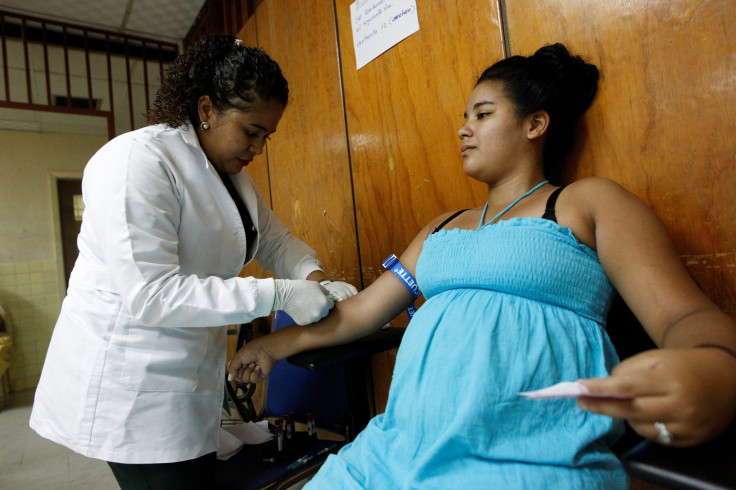What We Know About Zika: Despite Gains, Vast Gaps Remain In World's Understanding Of Virus, Summit Shows

The world's understanding of the Zika virus has come a long way in a short time. In mid-April, scientists confirmed a causal link between the virus and microcephaly, among other birth defects. They also unearthed the possibility, and then confirmed, that the mosquito-borne virus can also be transmitted sexually.
Compared to six months ago, when those facts remained unconfirmed or were barely suspected, scientists, doctors and policymakers are better armed and more knowledgeable about this latest major threat to public health, which is most grave for pregnant women and their unborn children. Yet despite those gains, researchers recognize how little they still know about the virus and the practical implications of those blind spots when it comes to preventing transmission of the virus, diagnosing it and above all, protecting those at risk.
"There are many unknowns with this virus," Dr. Thomas Frieden, director of the U.S. Centers for Disease Control and Prevention, said in early April. "The ongoing Zika outbreak has caused dangers from a mosquito bite no one imagined: birth defects." He urged people to wear long sleeves and pants to protect against mosquito bites and male partners of pregnant women to use condoms — or abstain for sex entirely — "because the virus may survive in human sperm after a man is infected."
Scientists and public health officials are gathering in Paris Monday and Tuesday for the International Zika Summit, and on the docket are talks on everything from Guillian-Barré syndrome, which is linked to the virus, to the molecular evolution of Zika to the history of mosquito control efforts — all of which highlight, in their scope and depth, how every new insight into the virus raises more questions and problems.
The contents of the summit are not open to the media, said the press office of the Institut Pasteur, which is hosting the summit.
But a look at the program reveals some of the key questions and problems researchers and public health officials face. One session was devoted to "Guillain-Barré syndrome and other neurological complications." The next focused on Zika and microcephaly. Although scientists have confirmed the link between the virus and subsequent problems in the brain and neurological system — Guillain-Barré syndrome can cause temporary paralysis, and some adults are suspected of having suffered temporary hearing loss after Zika infection — how exactly that happens is still being studied.
Another session concerns "Available diagnostics, strengths and weaknesses." Those tests, as Frieden and other public health officials have publicly testified, are accurate only in limited circumstances. Tests can detect Zika if an infection is active, but if it's not, or if a patient has had a similar virus instead, like dengue, antibody tests might report false positives, as Dr. Anthony Fauci, director of the National Institute of Allergy and Infectious Diseases at the National Institutes of Health, testified before a House committee in February. Diagnosis of Zika is critical not just for patients, as the summit's program indicated; one speaker was listed as discussing screening for Zika in blood donors — yet another challenge posed by the virus's spread.
No vaccines exist for Zika, and the fact that a vaccine for the related virus dengue took 20 years to develop is hardly encouraging for the prospects of a Zika vaccine. Nicholas Jackson, head of vaccine research and development for that dengue vaccine at Sanofi Pasteur, is slated to speak to that very issue Tuesday morning: "Lessons from dengue virus."
Many more questions remain unanswered. Why the sudden surge in birth defects in Brazil that appeared last year, when Zika virus was first discovered in a forest in Uganda in 1947? Did the virus mutate? "It seems like there is something different about the virus in the current outbreak in Brazil," researchers at the Harvard T.H. Chan School of Public Health pointed out in January. In Brazil, more than 3,000 babies were born with microcephaly in a matter of months, 20 times that seen in previous years.
That's yet one more question the summit will consider: the history of Zika virus, and how it moved from Africa before taking hold in Brazil and from there, spreading further throughout Latin America and the Caribbean. Still more issues, like how to control or eradicate populations of the Aedes aegypti and Aedes albopictus mosquito that carry Zika, are slated for discussion in Paris this week.
And as questions continue to surface, cases continue to rise. A pregnant woman in Houston tested positive for the virus, it was reported Thursday. She had recently lived in El Salvador, and it was unclear whether she had contracted the virus there or through sexual transmission.
© Copyright IBTimes 2024. All rights reserved.












